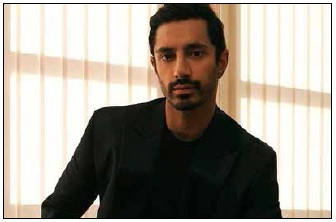‘It’s Time to Flip the Script’: Riz Ahmed Talks about Poor Muslim Representation In the Film Industry

British-Pakistani actor Riz Ahmed recently slammed the depiction of Muslims in the global media, tracing the structure of minority representation in the film industry and highlighting how powerful the painted picture can be.
“The stories we tell about communities affect the laws that get passed, the people that get attacked, the countries that get invaded,” he said in an interview to Muslim, a YouTube channel and media outlet that makes content for young Muslims to connect with and empower each other, amplify their faith, and share their lifestyles and views.
He pointed out the very real and damaging effects a certain portrayal of a community can have, rightfully calling it "dangerous" seeing as hate crimes are often based on misunderstandings and stereotypes. The Tillman Story (2010), a film on war in Afghanistan, is an example of a purely American narrative used to glorify their side while reducing the other to nothing but violence.
Ahmed went on to define the image that Muslims are assigned, establishing its two poles — “We’re either invisible or villainized.”
The Sound of Metal star spoke about the lack of depth a Muslim character has on screen and said they are often shown in an Islamophobic light. He asserted that such a depiction must be met with the same level of disgust as films featuring blackface and discrimination against indigenous people. Tropic Thunder starring Robert Downey Jr has been criticized many times for its depiction of blackface and Disney has faced backlash for its misconstructed and toxic portrayal of indigenous people.
He also critiqued scenes from American Sniper and his own movie Mogul Mowgli and categorized minority community representation into several groups . The range goes from the very common terrorist stereotype to the last and ideal stage where a Muslim guy is "just a guy — not about any agendas we’ve set or are forced to respond to."
The activist also highlighted a very skewed ratio and said under 2% of speaking roles in the top 200 films in the last few years have been played by Muslims despite them being a "quarter of the world’s population". He said we’ve "got to bridge that gap".
Ahmed shared his own experiences with discrimination and said, “Individual experiences of success don’t change how an entire community is viewed.” Examples of Muslims who have succeeded in the West are Muhammad Ali and Kareem Abdul Jabbar, two athletes whose names are known the world over. However, these success stories are just a fraction of true Muslim representation. For the most part, the Islamophobic lens prevails.
Ahmed is also the first Muslim to be nominated for a Best Actor award at the Oscars and while it's a great achievement, the fact that it only happened in 2021 is sad.
In general, we need to change the way Muslims are viewed in the global media. We can do this by, as Ahmed said, “showing a diverse Muslim community — racially, geographically, we need more women, different sexualities, abilities.”
He ended the interview with an example of minorities bending over backwards to make acceptance easier — Muslims altering their names not out of choice but to fit in because people struggle with pronouncing their names. Some examples of brown people who’ve had to morph their names to make it easier for people to pronounce are Mindy Kaling, whose full name is Vera Mindy Chokalingam, and Hasan Minhaj , who now uses the pronunciation hass-ahn rather than hass-un because it's easier for American people to understand. There’s also Kumail Nanjiani at the opposite end of the spectrum, who commendably continues to use his full name and refuses to change it for the comfort of other people.
“I ask myself the same question — I have kind of censored my own name,” Ahmed said. He uses Riz instead of Rizwan.
He concluded with a statement quoting a Sweatshirt Boys’ lyric saying instead of editing the self, we must get the others to stretch and shared his step forward declaring he’s begun introducing himself as Rizwan.

